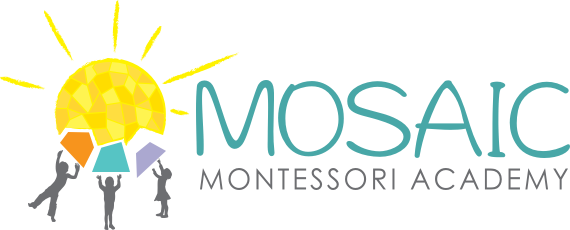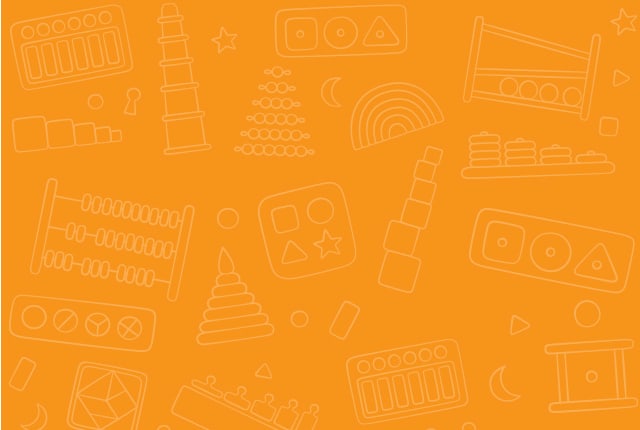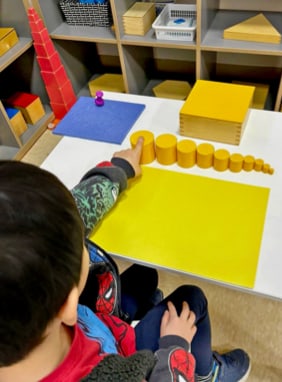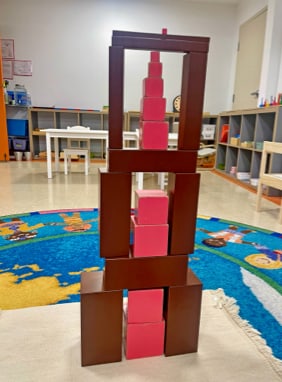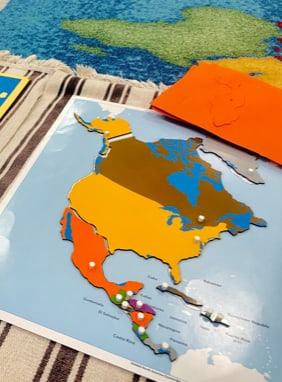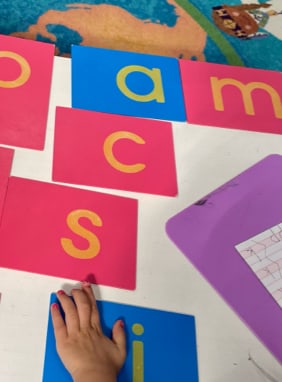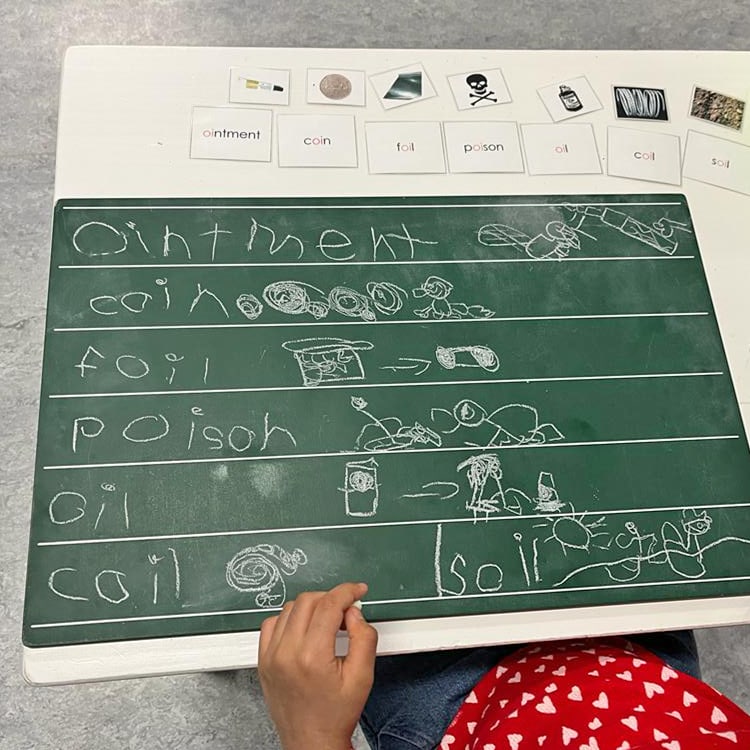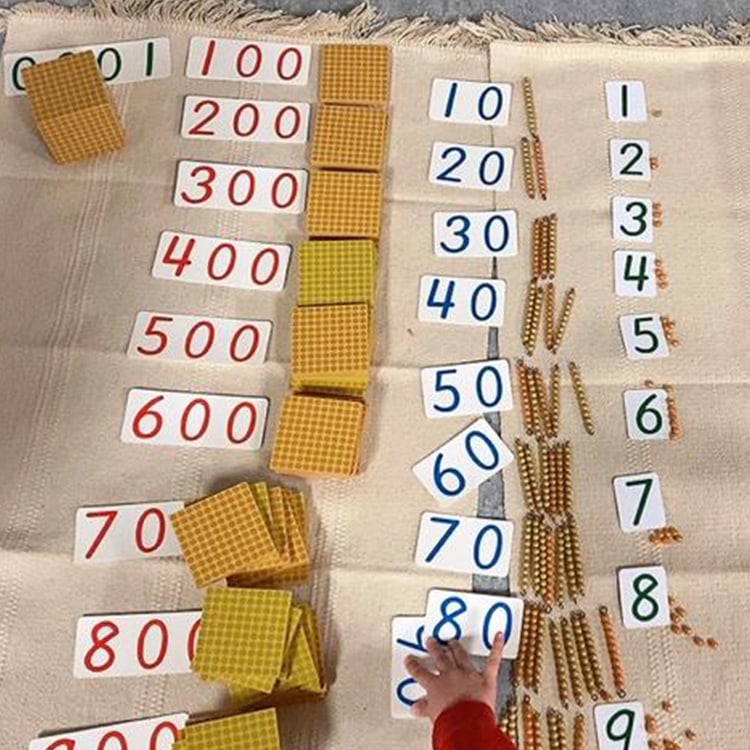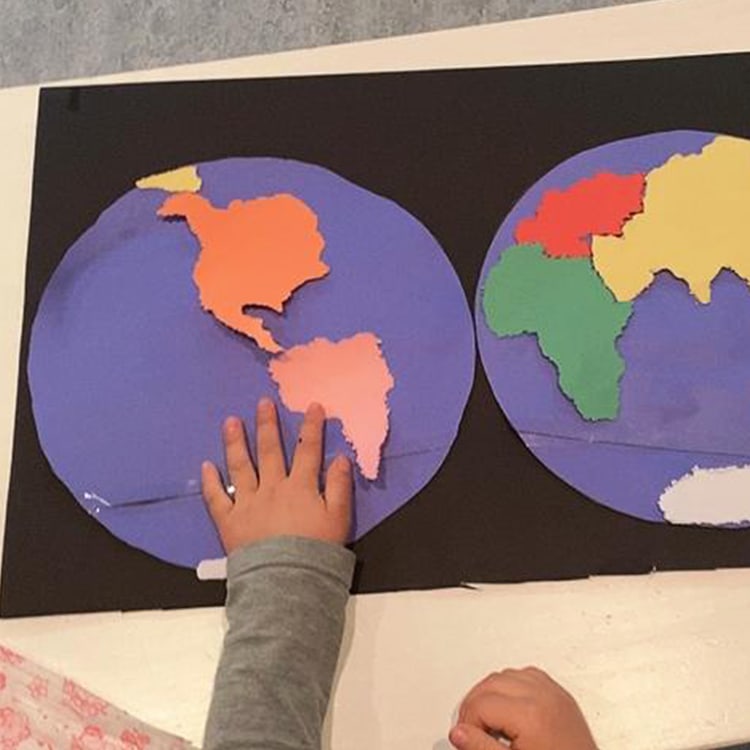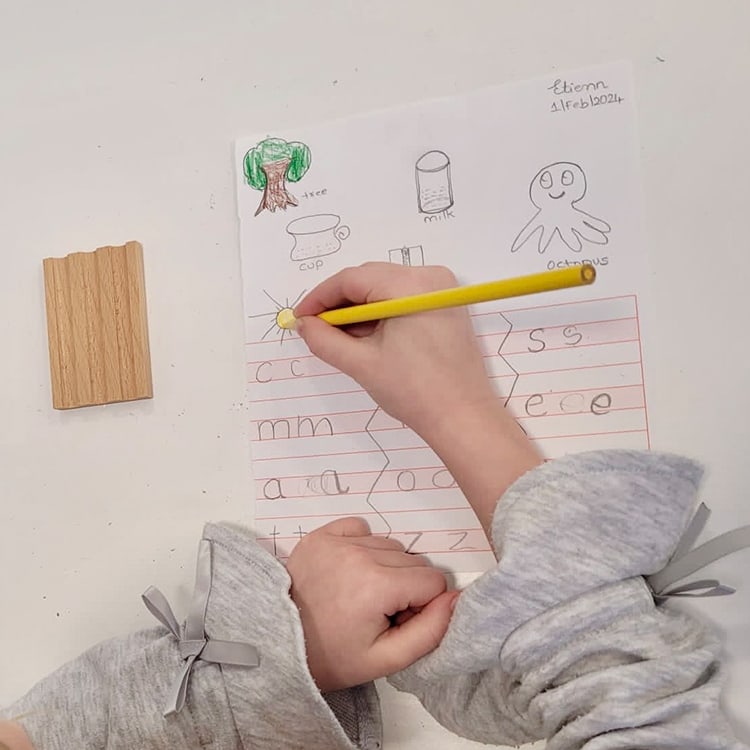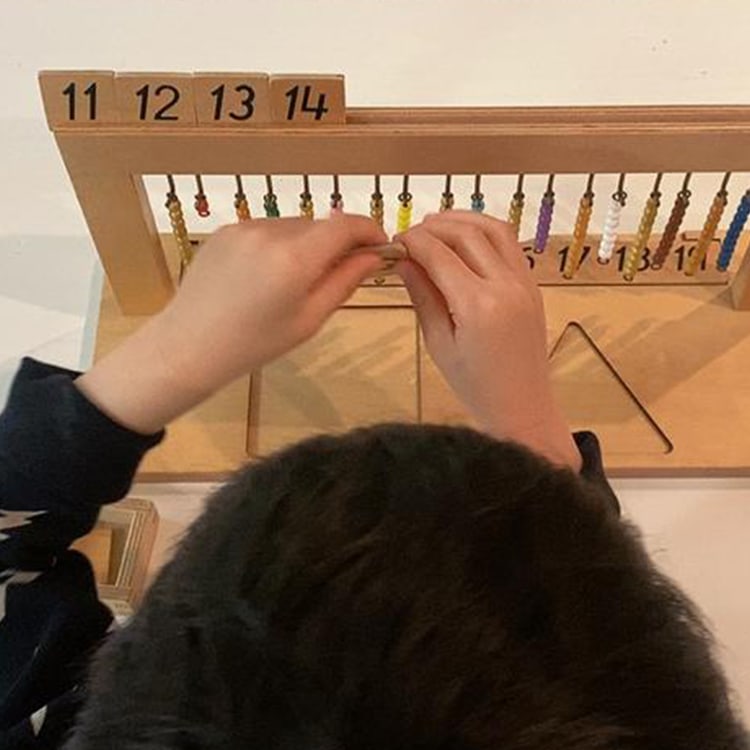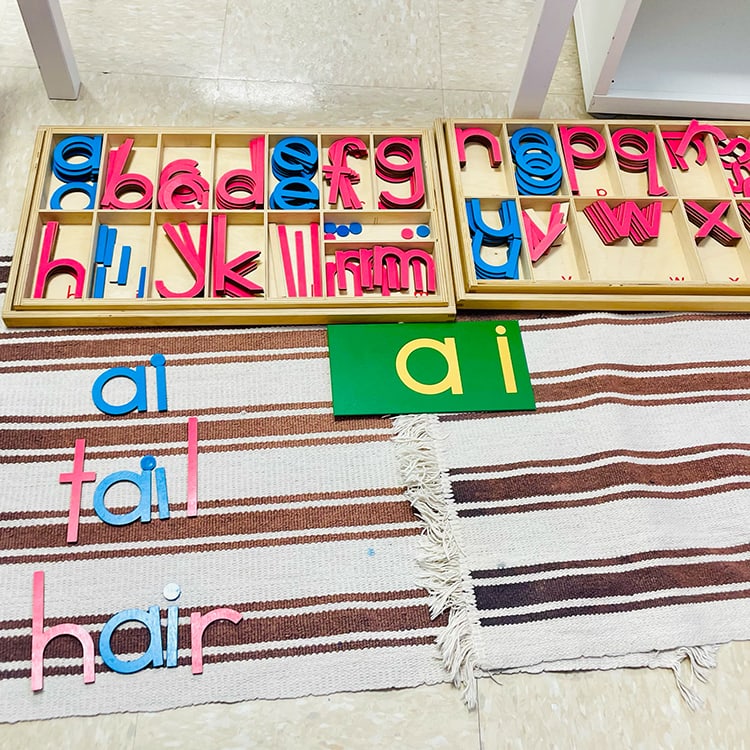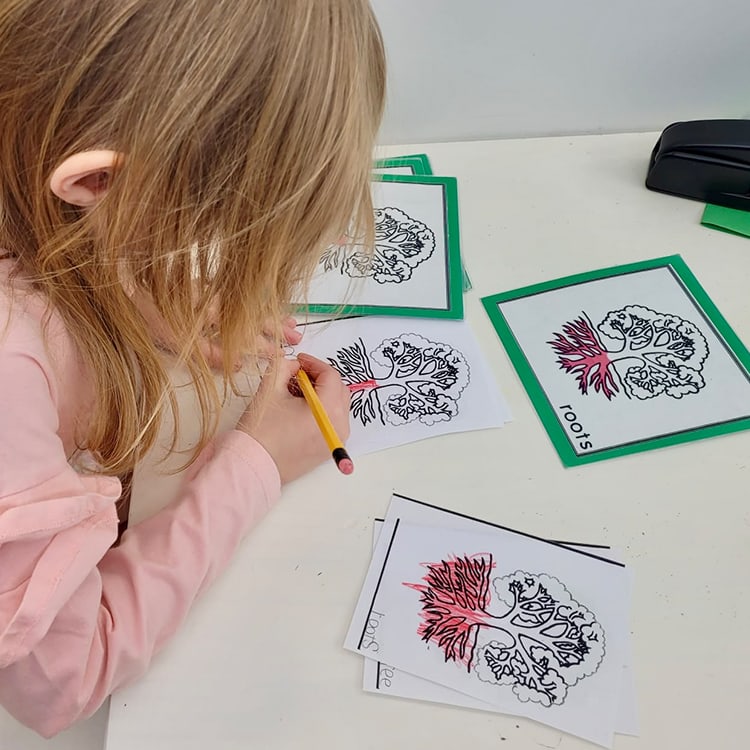Choosing a school for your child is a difficult task, especially choosing a preschool, as it’s the first school they’re going to attend. You want your child to feel excited and passionate about learning, and hopefully, help them develop a love for school that will make education more of a joy than a chore.
The desire to make learning fun and fulfilling for a child leads many parents to consider Montessori schooling. After all, one goal of the Montessori Method is to teach children to follow their curiosity and learn through activities of their choosing.
For the uninitiated parent, the Montessori Method can seem very abstract and foreign. But if you look at the Method within the context of day-to-day activities, it starts to make a lot more sense.
What Exactly Is the Montessori Method?
The Montessori Method is a teaching method that primarily focuses on young children. The theory behind the Method states that children are natural learners; they learn to walk and speak without anyone sitting down to teach them. If we give them the right tools and a little bit of guidance, they can learn everything from abstract concepts like mathematics to household skills like cleaning.
The Montessori Method relies on child-led learning, meaning the child decides what they want to work on for any given day. While this kind of learning environment sounds unusual to many, it’s based on the science of child development.
What Does an Average Day Look Like in a Montessori Classroom?
Technically speaking, every Montessori classroom does follow a schedule. There is, work time, snack time, clean-up time, etc. But unlike traditional schools, which offer highly-structured time in a loosely-structured setting, Montessori schools offer loosely-structured time in a highly-structured setting.
That means that, in a way, there is no prescribed average day in a Montessori classroom. The child’s learning experience is largely up to them. They will engage in hands-on learning activities, and they get to choose the activities they want to do. This kind of freedom encourages children to build independence and develop a positive and healthy relationship with learning. Learning becomes something children get to do rather than something they’re told to do.
The Importance of Unstructured Time
A Montessori school day includes several hours of unstructured learning time. To people who grew up with traditional schooling, the concept of unstructured time can sound completely counterintuitive; more like babysitting than actual schooling. But this isn’t true.
One of the goals is to teach children that learning is rewarding in and of itself. So to drive that home, there is an important distinction between playtime and unstructured time. The work children do during unstructured time is self-correcting. It leads children from learning one skill to the next by nature.
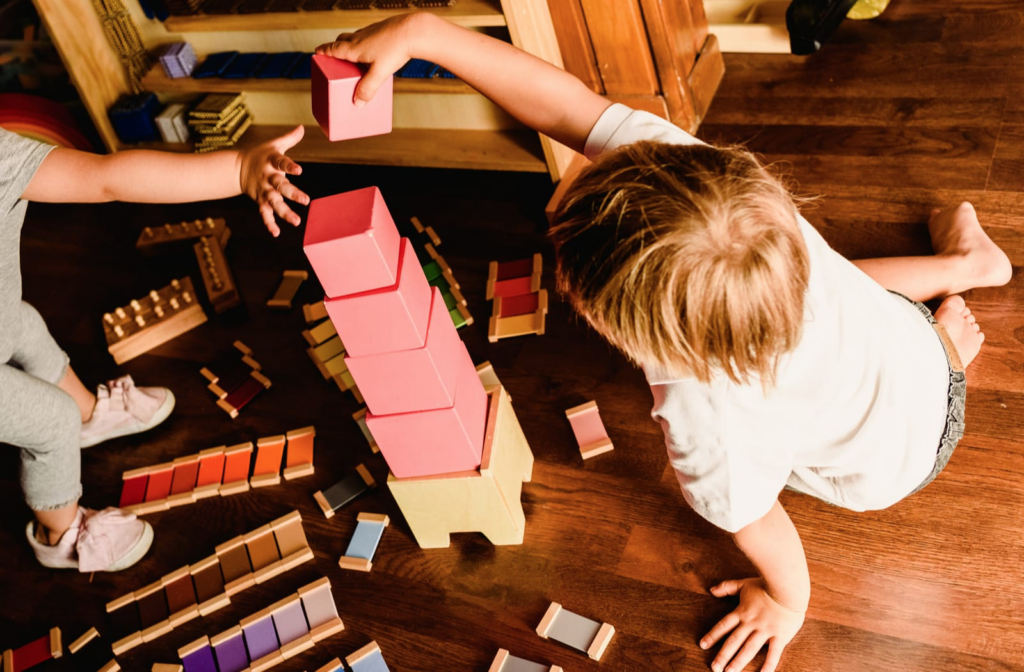
Mixed-Age Classes
Montessori classes are also unique in that they can be quite large, and always include children of mixed ages.
Children are more likely to learn from their peers than adults. When children of various ages learn alongside each other, they teach each other. In addition to independence, this structure teaches children how to collaborate, communicate, solve problems together. Older children in mixed classrooms have the unique opportunity to develop healthy leadership skills, which traditional schooling often overlooks.
At its core, the Method aims to foster the development of children as people, not just as students. In a Montessori model, large class sizes show children the value of being helpful and sensitive to the needs of others.
Learning Materials
When Dr. Maria Montessori started her work on the Method in 1897, she developed very specific “learning materials” for children to use in their work. The materials were designed to be very tactile, offering a solid physical representation of more abstract concepts like numbers.
Today, accredited Montessori schools still use materials that are exactly the same as Dr. Montessori’s, down to their sizes, shapes, and colours. We use these materials because they work. Dr. Montessori rigorously tested each item, perfecting it until it offered the highest possible benefits to the child.
While the Montessori Method uses loosely-structured time, our environments are highly-structured.
If you tour multiple Montessori schools, you’ll notice that many of the classrooms seem nearly identical. The similarities are not a coincidence. Every material within a Montessori classroom has a very particular purpose; it has been carefully designed with the expressly to empower a child’s learning.
A Day of Montessori Schooling is Filled With Choices
While there is no standard “day-in-the-life” of a Montessori school, there are common themes that appear every day. Children get the benefit of peer-learning, interest-led-learning, hands-on experience, independence, and overall, choices.
Under the guidance of a teacher, children in a Montessori classroom are empowered to make choices. With the power to choose, children learn persistence, focus, and task completion, which will serve them well throughout their lives.
